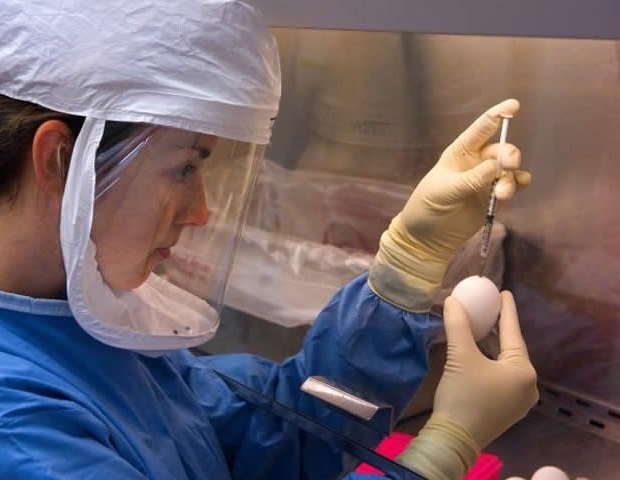A new study from the National University of Singapore Yong Loo Lin School of Medicine (NUS Medicine) analyzing the resilience of Singaporean families during the COVID-19 pandemic has revealed important findings that highlight how most families with young children have adapted with success in the challenges brought about by the global crisis.
Led by Professor Jean Yeung Wei-Jun from the Department of Paediatrics and the Human Potential Translational Research Program at NUS Medicine, and Dr Chen Xuejiao, a former researcher from the Department of Paediatrics at NUS Medicine, the research team looked at data from 2,818 families before and during the pandemic and identified six distinct family groups with varying degrees of financial and relational resilience. Professor Jean Yeung and Dr Chen Xuejiao are also researchers at the A*STAR Institute for Human Development and Potential.
The data came from a nationally representative longitudinal study – the Singapore Early Development Study (SG-LEADS) and was collected over two time periods – Wave One in 2018-2019 before the COVID-19 outbreak and Wave Two in 2021 during the second year of the Covid-19 pandemic. The findings were based on 2,818 households across all planning areas in Singapore.
The study, one of the first to examine the economic and relational responses of Singaporean families to the pandemic with a national sample, found that the majority of families showed significant resilience:
• 31% of families were classified as “financially secure and relationally strengthened”, having improved family relationships.
• 28% were deemed “financially secure and relatively stable,” maintaining family dynamics prior to the pandemic.
• 11% were experiencing “financial problems, but relatively improved,” highlighting a significant boost in relationships despite financial difficulties.
• 14% were “financially struggling but relationship stable,” coping with financial challenges while maintaining family relationships.
However, two groups faced more significant challenges:
• 11% of families were “financially secure but related to deterioration,” where financial stability coexisted with deteriorating family dynamics.
• 4% were classified as ‘financially and relationally fragile’, suffering from both financial difficulties and deteriorating family relationships.
The study highlighted that families with greater socioeconomic resources before the pandemic were more financially resilient, while families with strong relational factors, such as maternal self-efficacy, quality family time, low work-life conflict, and living in supportive neighborhoods, showed a higher elasticity ratio. In particular, government and community support played a critical role in keeping both groups of families financially challenged during the crisis.
Key findings:
• 42% of families were able to maintain their family dynamic before the pandemic, with 44% reporting strengthened relationships despite various financial challenges.
• Families with greater access to multilevel resources—including individual psychological strengths, family cooperation, and external support from communities and government—were better positioned to withstand adversity.
• Families with mothers who exhibited higher self-efficacy and self-confidence helped foster positive family dynamics.
• The study highlighted the vital role of family cooperation, where mothers, supported by fathers, managed lower work-life conflicts and quality of family time, contributing to a more supportive and cohesive family relationship.
• Family relationships deteriorated when the mother faced work-life conflict, such as shouldering most of the childcare responsibilities while the father had the flexibility to work from home, and when the quality of family time deteriorated.
• Families residing in cohesive and safe neighborhoods were better able to maintain family well-being under environmental stress.
• Government and community support emerged as important factors for economically disadvantaged families, highlighting the importance of external assistance in times of crisis.
Our findings show that family resilience is not uniform and is shaped by a combination of economic, psychological and social factors. At the individual level, personal psychological characteristics such as self-efficacy may foster positive adjustment and development of family relationships during the pandemic. At the family level, low childcare burdens and effective couple cooperation and high quality family time can help maintain or strengthen family relationships during the pandemic. At the community level, living in a safe and cohesive neighborhood maintains and enhances family well-being when faced with environmental stressors. In addition, external resources, such as government support, can serve to alleviate financial hardship and disruptions to family dynamics, especially for economically disadvantaged families.”
Prof Jean Yeung Wei-Jun, Department of Paediatrics and Human Resources Research Programme, NUS Medicine
“Families can develop a variety of pathways to resilience depending on their resources and circumstances. It is important to mobilize both individual and public resources to enable families to endure and recover from adversity and promote positive adaptations in the long term.” This study offers valuable insights into designing more effective support and intervention programs and policies to help families in times of crisis.”
The research provides critical data to inform future interventions aimed at strengthening family resilience, particularly in light of potential social inequalities that may intensify during crises such as the COVID-19 pandemic.
The study is part of SG-LEADS, a large nationally representative longitudinal study examining the impact of COVID-19 on Singaporean families with young children. It sheds light on the complex relationship between economic and relational resilience and highlights the need to mobilize both public and private resources to support family well-being in the face of adversity.
This research study was published in a leading Sociology journal – the Journal of Marriage and Family, titled COVID-19 experiences and family resilience: A latent class analysis.
Source:
Journal Reference:
Chen, X. & Yeung, WJ. J., (2024). COVID-19 experiences and family resilience: A latent class analysis. Journal of marriage and family. doi.org/10.1111/jomf.13031.
